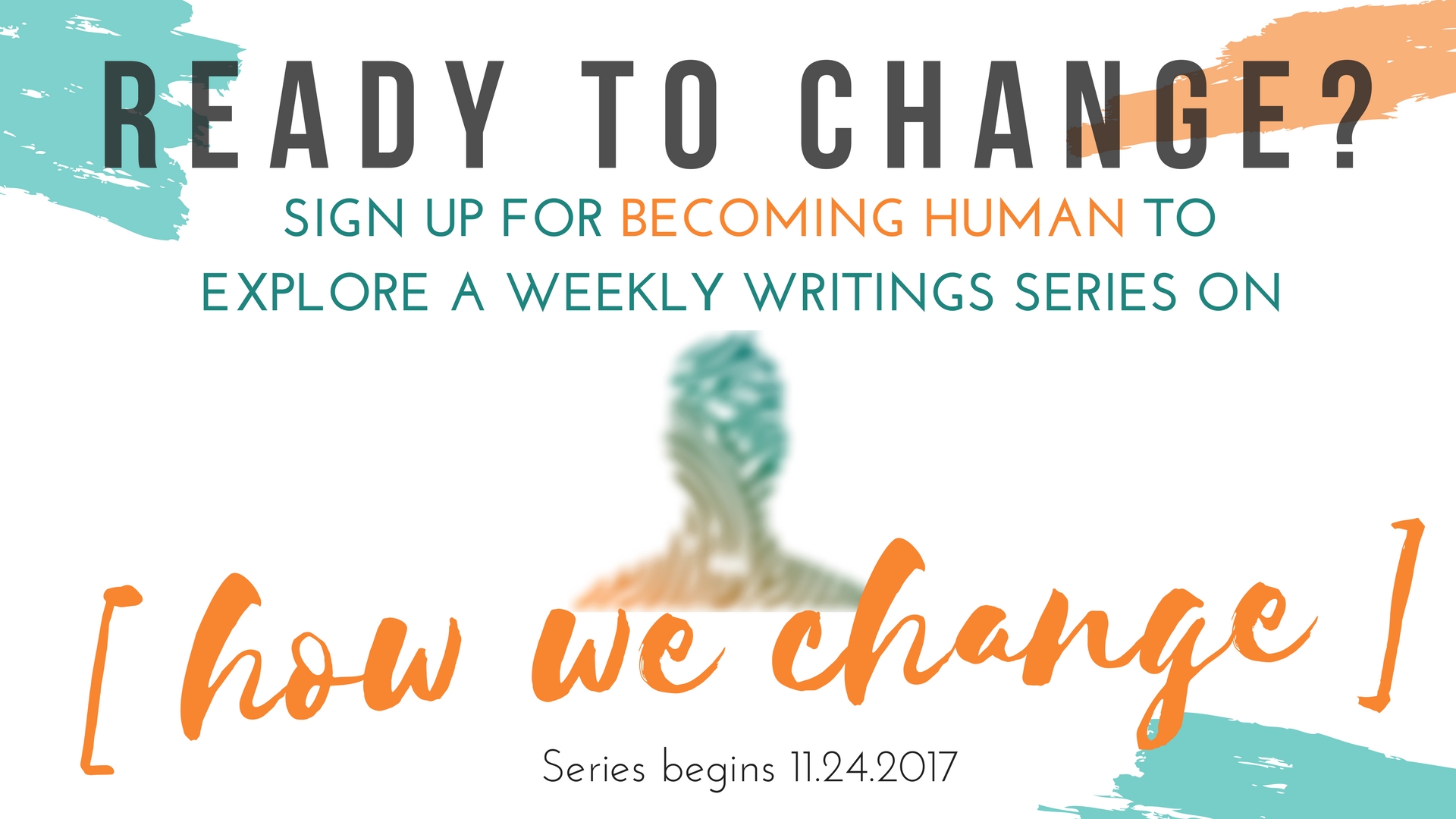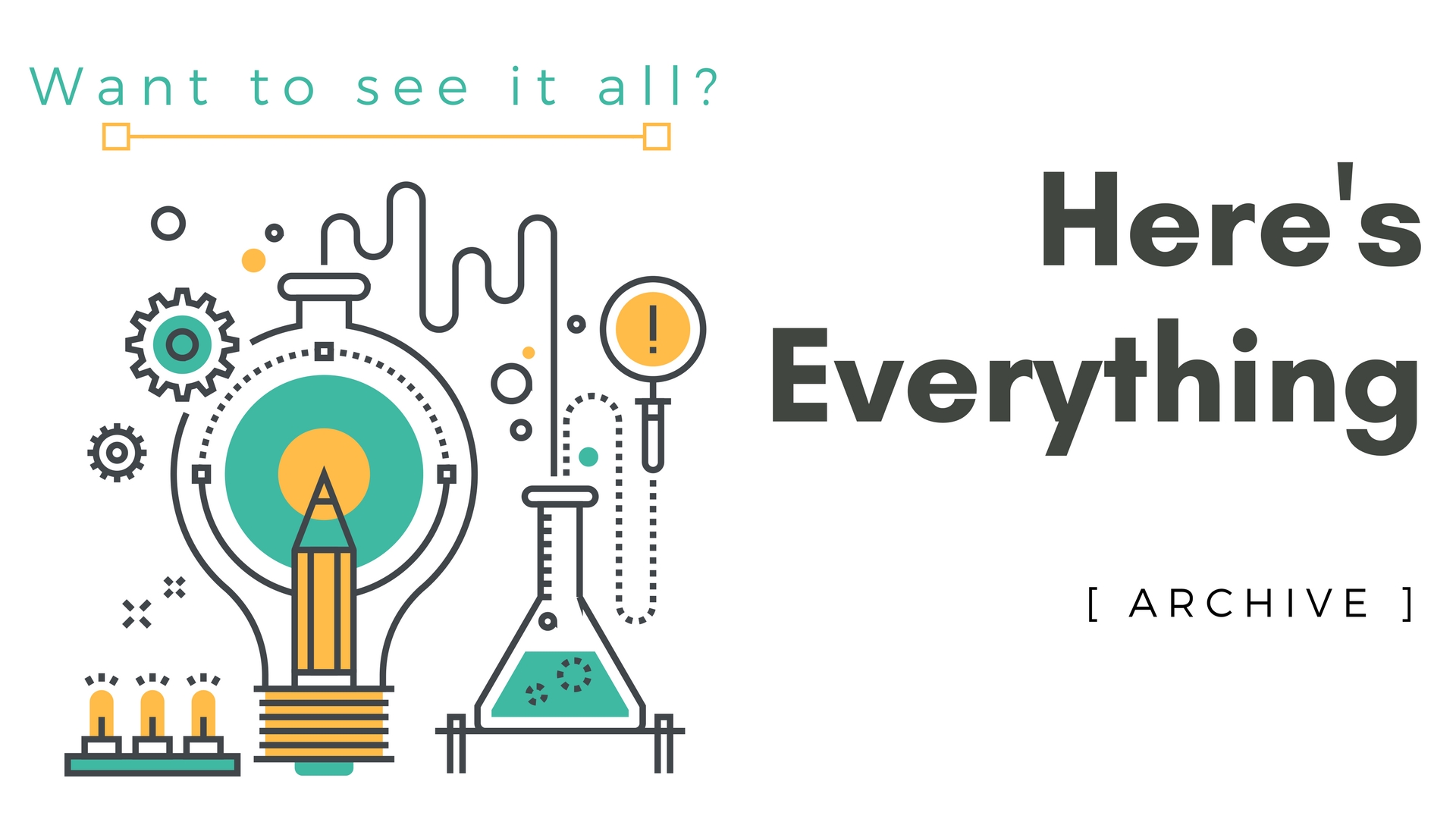[How We Change] - Three Possibilities...But Usually One
/Let’s start with two possible scenarios that could happen during your day.
First, let’s say you are on your way to work. You’ve been wrestling and contemplating your identity, your dissatisfaction with how you spend your time. On your way to work you hear a story on the radio about someone who retired from their occupation early and lives off of supplementary income from doing what they love. You arrive to work and check your financial statements realizing that you have enough money saved and invested that you could quit your job and begin making those wooden shoes you’ve always loved making and still survive. Just then, your friend calls and asks if you want to go in on a wooden shoe making business with them and, in unexpected fashion, you walk into your bosses office and put in your two weeks notice.
You change because of an epiphany.
Or, let’s say it is a normal day, you wake up, begin your preparations for the day, and show up like you do - every single day - and start your work writing your TPS reports. You get a message from your boss asking you to come to her office. Immediately, she begins apologizing that this is unexpected and not what she wants, but then tells you that they are letting you go. You are fired.
Upset and distraught, you get in your car and begin driving home. You call your friend, at the end of your rope, not sure how you are going to make it, and your friend says out of nowhere, “Do you want to go in on a wooden shoe making business with me?”
Change happens, but this time, it is because of suffering.
When you hear someone’s story and they tell you about a change, a shift in their life, there is sometimes a catalytic event of suffering or epiphany (or both together). Rarely do you hear someone say, “Everything was completely normal and then it stayed completely normal and that’s how I changed.”
What powerfully changes us usually comes out of deep pain or deep love.
Epiphany. Suffering.
Those are the first two possibilities of how you can change. Unfortunately, they are also a bit rare and a bit out of your control.
But then there is a third option. A much more normal option. An option that may even be precipitated by an epiphany or suffering where an event sparks something in you, but then you still have to make the change & continue the process - the one that is hard & happens slowly, often involves a loss, but that is absolutely central to who you are as a human being.
You decide to go into the wooden shoe business, but then you have to actually sustain the change.
Or you notice an unhealthy habit and you want to set out on a new journey.
This involves the third way change happens:
Tiny steps and habits, consistently, over time.
It requires intentional dedication and practice to make the change.
So let’s shift gears into something a little more practical than wooden shoes.
Let’s say you want to change your habit of flossing regularly (or fill in the change you are wanting to happen).
Here's how that would work:
Step One - Create Triggers.
A trigger prompts or rewards you. And it has to be specific, not abstract. An example would be every time you eat a piece of candy, you floss. So you get the candy (reward) and it triggers the habit. Or you put the floss on top of your toothbrush so that every time you go to brush your teeth, you have to pick up the floss with it.
What practical trigger can you implement to force you to take a certain desired action that you want to change or to keep you from doing the thing you'd like to stop doing?
Step Two - Motivation.
You have to make the pros outweigh the cons. Behavioral scientists talk about three ways this happens:
- Sensation - associating some degree of pleasure or pain to inspire you to continue the habit. This may be making your floss taste good. Something that conditions you to view your change positive...even if it is incredibly hard to do.
- Anticipation - getting a feeling of hope or fear from the habit; the fear of paying a dentist obscene amounts of money to fix your teeth, for example. So you put a list of dental procedure prices on your mirror. Or you imagine the outcome that would result if you stopped drinking or lost the weight or exercised every day.
- Social Cohesion - rejection or acceptance by others. You are more likely to do things that are seen preferable by your social group. Simply get your family or friends to say that they affirm and approve of what you are doing…it gets immediately easier to begin the change. This involves you making your intentions public with that group of people, but it builds in accountability, encouragement, & positive social benefits.
Step Three - Ability
You have to start the habit development at a level you are capable of. You make it as simple and easy as possible to begin in small, tiny steps. For example, if someone wants to begin meditating, it would be more likely to fail if they tried starting at 1 hour sessions. So start meditating at a time commitment that you know you can do. Start with one minute. Or if you want to start working out, don’t start with heavy sessions 6 days a week. Commit to one day a week. Or flossing, just commit to one tooth a day. From there, the habit will become normal and your ability to move to two teeth will be easy and before you know it, you’re flossing the whole trap. What happens when you start small is it builds momentum, which makes it easier to do, which builds more momentum so that your ability increases exponentially.
So there are three ways we change - but it is usually the last one.
Which is something you can begin doing now.
[ this is part 4 of "How We Change" - click here to see the rest of the series or click the first image below ]














![Three Reasons We're Lonely - [And Three Responses For Being Less So]](https://images.squarespace-cdn.com/content/v1/5963d280893fc02db1b9a659/1651234022075-7WEKZ2LGDVCR7IM74KE2/Loneliness+3+update+%283%29.png)





























